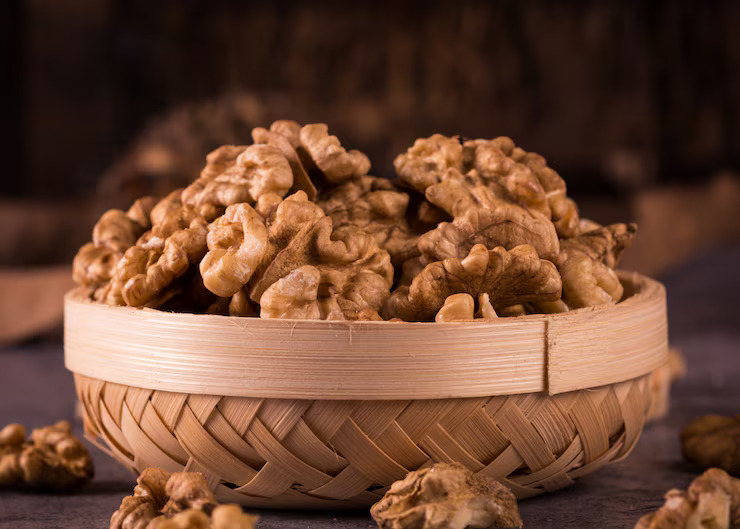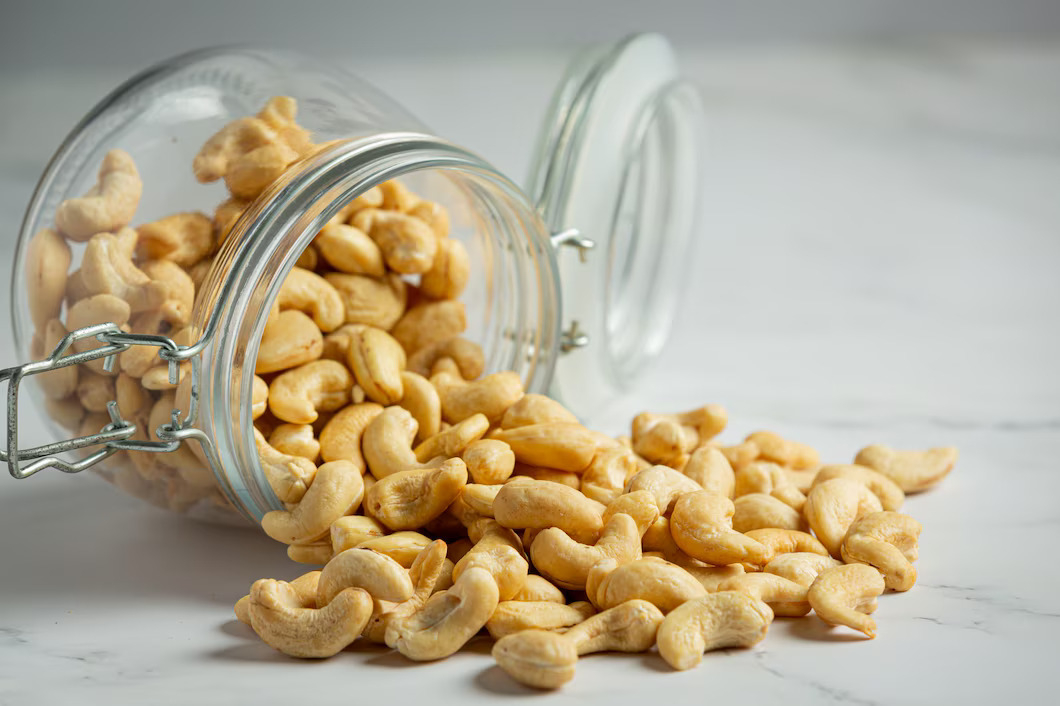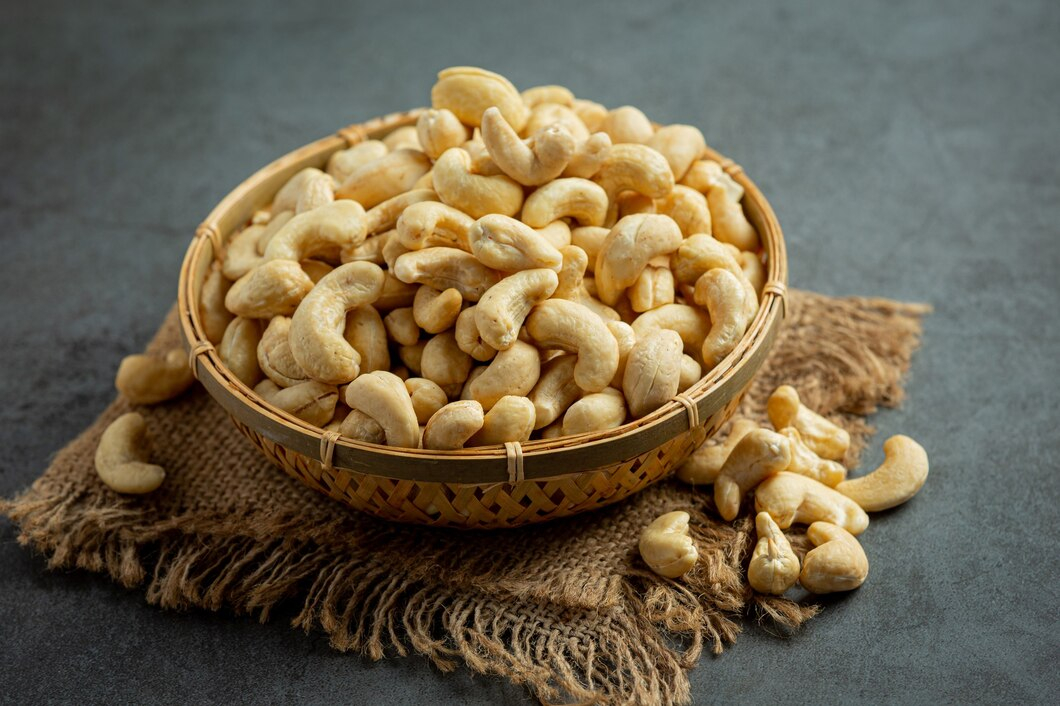It’s a Tiny Superfood with Major Perks
If I told you that there’s one little food that
1) you can eat every day that can boost brain power,
2) you can eat every day that can protect your heart,
3) you can eat every day that can help you manage your weight,
4) you can eat every day that can support your gut health?
That sounds too good to be true, no? But that’s exactly what walnuts have to offer.
I’ve been a nutritionist for several years, and if there’s one food I reliably recommend to my clients for a simple health boost, it’s walnuts. Nutty and delicious, walnuts are rich in not only nutrients but also a host of health benefits that can truly affect your well-being. And the best part? They are incredibly easy to add to your daily routine.
So, let’s get into the science-based reasons why walnuts deserve a place on your plate — and how you can get started adding them to your diet today.
The best food for the brain — the best at boosting brain power
Have you ever noticed how walnuts look like little brains?
Well, it seems that nature may have provided a clue. Walnuts could be the best food for brain health.
They are also high in omega-3 fatty acids, especially alpha-linolenic acid (ALA), which may promote cognitive functioning and neuroprotection.
Studies show that walnuts may improve memory, support focus and help mitigate cognitive decline in older adults.
A study published in 2020 in Nutrients suggested that walnuts might have a role in slowing cognitive decline in Alzheimer’s disease due to their high antioxidant content, that helps fight oxidative stress in the brain.
Walnuts are packed with polyunsaturated fats and plant-based omega-3s, which help lower LDL (bad) cholesterol and increase HDL (good) cholesterol.
A 2019 study in the American Journal of Clinical Nutrition found that people who consumed walnuts daily had lower blood pressure and reduced inflammation, two major risk factors for heart disease.
Walnuts also help maintain artery flexibility, reducing the risk of plaque buildup and improving overall circulation.
How to use them: Swap out unhealthy snacks for a handful of walnuts, or crush them as a topping on grilled fish or roasted vegetables.
Weight Management Support: Busting the ‘Nuts Make You Fat’ Myth
There’s a common misconception that nuts should be avoided when trying to lose weight. But science tells a different story.
Walnuts are high in healthy fats and protein, which increase satiety and reduce cravings, making it easier to control calorie intake.
A study in Diabetes, Obesity & Metabolism found that walnut consumption activates a region of the brain that regulates hunger and cravings, leading to less overeating.
Despite their caloric density, research shows that people who eat nuts regularly tend to have a lower body weight compared to those who don’t.
How to use them: Add them to your yogurt, mix them into homemade energy bars, or simply enjoy a few as a snack between meals.
Gut Health & Digestion: Nourishing Your Microbiome
Your gut health impacts everything from digestion to immunity and even mental health—and walnuts can play a role in keeping your microbiome happy.
Walnuts act as a prebiotic, feeding beneficial gut bacteria that help digestion and boost immunity.
A 2018 study published in The Journal of Nutrition found that eating walnuts increased levels of gut-friendly bacteria like Lactobacillus and Ruminococcaceae, which are linked to better digestion and metabolism.
They also contain fiber, which aids bowel regularity and prevents constipation.
How to use them: Blend walnuts into soups for a creamy texture, mix them into whole-grain dishes, or add them to homemade granola.
Anti-Inflammatory & Longevity Benefits: A Natural Anti-Aging Food
Chronic inflammation is linked to many diseases, from arthritis to cancer. Thankfully, walnuts come packed with powerful anti-inflammatory properties.
They are loaded with polyphenols, vitamin E, and flavonoids, which combat inflammation at the cellular level.
Studies suggest that walnut consumption reduces the risk of type 2 diabetes, cancer, and other age-related diseases.
Research in JAMA Internal Medicine found that people who consumed nuts regularly lived longer, healthier lives.
How to use them: Crush walnuts and use them as a crust for baked salmon, stir them into warm quinoa, or enjoy them with dark chocolate as a healthy dessert.
How to Add Walnuts to Your Diet
If you’re not already eating walnuts daily, here are some simple and delicious ways to start:
Morning Boost: Sprinkle walnuts over oatmeal or blend them into a smoothie.
Salad Upgrade: Add them to a leafy green salad with goat cheese and apples.
Energy Bites: Mix chopped walnuts with dates, cocoa powder, and coconut flakes for a nutritious snack.
Homemade Nut Butter: Blend walnuts into a creamy spread for toast or fruit.
Savory Dishes: Use them as a crunchy topping for soups or grain bowls.
Final Thoughts: Take the Walnut Challenge!
By now, you can see why walnuts are a true superfood. They nourish your brain, protect your heart, aid digestion, fight inflammation, and even help with weight management.
So here’s my challenge for you: Start adding just one handful (about 1 oz) of walnuts to your daily routine for the next two weeks and see how you feel! Notice your energy, digestion, and cravings—it’s a small change that can have big benefits.
What’s your favorite way to enjoy walnuts?

















